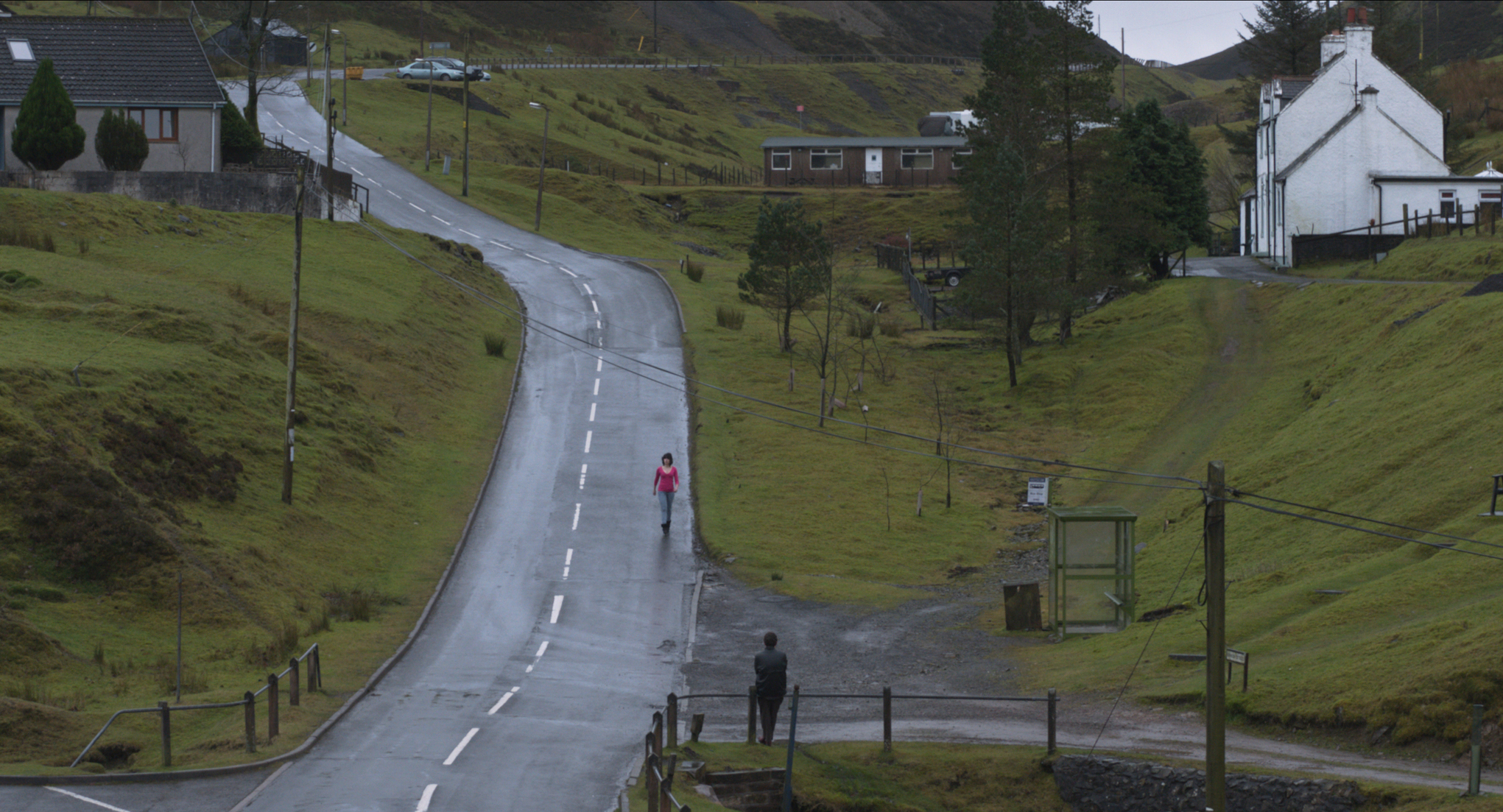An eldritch orchestra.
Mica Levi
Under the Skin (2013)
Essay
Written December 2022.

Isserley, in the Highlands—Under the Skin (2013)
What the precise role of the composer is, when scoring a film, is a philosophical question of varying answers, depending on not only who is asked, but the film in question. Are they to enhance the film, bringing the director’s vision to life; to ornament the dialogue, bringing each empathic to-and-fro between characters to a thematic reality? Are they to remain akin to an impartial bystander, simply telling their version of an observed truth through the medium of music? Is it both, or something different, beyond it all? In the case of British composer, Mica Levi, for Jonathan Glazer’s 2013 adaptation of Michel Faber’s genre-bending, yet sci-fi-rooted epic, Under the Skin, the latter would perhaps be the most fitting; an audiological mapping, writing and journey, rarely seen in cinema.
Serving as the composer’s debut film score, before the scoring successes of British director Steve McQueen’s Mangrove, and Chilean director Pablo Larraîn’s Jackie, the Under the Skin soundtrack is as otherworldly; as alien, as it gets. It is an eldritch orchestral symphony, erring on the unknown, the bizarre, the unending and the cosmically, fantastically seductive, playing into the equally fantastically seductive protagonist, Isserley, played by Scarlett Johansson. That Glazer as director relies heavily on silence throughout the film, gives Levi an advantage and place within the picture as much of a helms-person as Glazer himself; through vibrato sections, so complex in their musical workings, layered with percussion and digital sound-effects, we can almost hear the firing of neurons— the billowing of immaterial thought, as Isserley’s alien reality meet our familiar, for the first time. We hear discordant strings soar and plummet like otherworldly creatures pining for unseen masters; drums droning in swallowing thuds like heartbeats in their infant, biological workings. Levi, transcending mere soundsmith, becomes something much greater— sculptor, orator and even actor, arguably. As much as Scarlett Johannson was the one primarily tasked with bringing Faber’s seductress to life, Levi’s magnitudinal dedication to her, closely seconds it; one that does her complex personality, biological makeup and personal journey in her newfound home of the Scottish highlands a brilliant, yet chilling justice as she embarks on a quest for greater understanding of her place within the universe.

Isserley, hunting for Hitchikers —Under the Skin (2013)
WIth track titles such as Lipstick to Void, Mirror to Vortex, Bedroom and Bothy, there is interplay and juxtaposition between the mundane and the everyday— coincidently perhaps, but nevertheless a point of mention, in its similarity to the literary approach of Michel Faber, himself, who did so too with the eponymous novel. For the most part, the succinctness and brevity used in the titling (Drift, Bedroom, Death etc) does the tracks justice; in the case of the glittering masterpiece Love, perhaps less so in compressing the unending, warmth and vibrance that the composition emanates, into one word. Yet, few, if any listeners, who have experienced such a thing, can listen to the track in question and not be able to feel the range of ineffable emotions that the track, at just over five minutes, is able to generate. It denotes a mourning; a loss of an innocence, a surrendering to something greater and beautiful, while ushering in and embracing a newness, warm and optimistic, shadowed by glints of darkness. That the interplay between opposing forces, emotional, or aetherial, remains a recurring theme within Levi’s soundtrack, makes it all the more powerful, listenable and enchanting, especially away from the heavier sections that pull audiences and listeners closer to a swallowing void, reserved for the protagonist’s doomed hitchhikers in their destiny to human carrion: Vodsel.
For a soundtrack that earned Levi a European film award for best composer in 2014, that was performed at The Proms in London in 2019 by The London Contemporary Orchestra and even sampled by the likes of American technical death metallers, Origin during live performances, Under The Skin, as chilling, terrifying and otherworldly as it often is, does the impossible— it goes beyond the constraints of the film, or the book, resonating with audiences existentially, organically and beautifully, humanising the very character who learned what it is to be one.